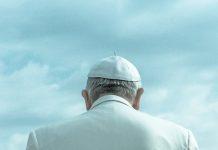As Italy heads toward its snap general election later this month, Italian Cardinal Matteo Zuppi of Bologna, considered by many to be Papabile, has stressed the need to prioritize the poor and avoid polemics.
Newsroom (07/09/2022 10:30 PM Gaudium Press) Speaking to the Italian newspaper Corriere Della Sera, Zuppi said the election is “a decisive moment for the country,” which is barely recovering from the COVID-19 crisis and whose leaders must navigate fresh political challenges related to the war in Ukraine.
The cardinal is the head of the Italian bishops’ conference and is considered by many Vatican observers to be “papabile,” or a likely candidate to be the next pope.
In a widely controversial move, Italian politician Matteo Salvini on Sunday called for an end to sanctions against Russia due to high energy bills that are putting citizens “on their knees.”Salvini is a frontrunner to be Italy’s new Minister of the Interior if the current favourite for Prime Minister, conservative candidate Georgia Meloni of the national conservative Fratelli d’Italia party, wins.
Rather than getting into specific policy questions or opining on candidates, Zuppi addressed the broader political and social landscape, saying, “We must never forget and never get used to suffering.”
After two years of crippling lockdowns and limitations on international travel, which forced many Italians dependent on tourism out of a job, the number of people in Italy living in poverty has risen to roughly six million, Zuppi said.
This statistic, he said, “must force us to ask ourselves about wasted opportunities and about the choices to make, without deceiving ourselves with promises that we cannot keep and fighting poverty, not the poor.”
“We have job opportunities for many,” he said, saying what is needed are “serious training itineraries and job opportunities that are not perennially precarious.”
With many experts predicting that the national poverty rate will continue to rise, “the involvement of every man and woman is required” to find solutions, Zuppi said. The church “will continue to say that the poor and therefore the person are relevant and that politics must put the person at the center and defend them.”
Zuppi said his words apply not only to those who lack food but also to those who are fragile, alone, and overwhelmed.
He quoted the mid-20th century Italian priest, Don Lorenzo Milani, who taught poor children and was a known advocate for conscientious objection: “our only reason for living is to please the Lord and to show him that we have understood that every soul is a universe of infinite dignity.”
“I find myself there,” he said. When it comes to the Sept. 25 vote, the church “is for freedom of conscience, which is not the freedom of indifference.”
The real choice, he said, “is to defend and love the person, of any alphabet or colour, from A to Z.”
“Polarization, so fashionable and overbearing, does not help, rather…it deceives and creates an illusion: if you imagine yourself on the right side or in defense of the truth, on the other hand, most of the time we end up lost, endangering the very truth that we thought we were defending,” he said.
Zuppi said the world of politics, in his view, is in a difficult place “because it has been reduced to the defense of individual rights, while politics defends the individual because it defends the public, common thing.”
He voiced hope that Catholics would actively engage in politics, including in this month’s vote, and that “they do it with love, like Pope Francis asks in Fratelli Tutti.”
This type of love, Zuppi said, is not a passing adventure or something seasonal. “True love lasts and resists adversity. If politics is convenience, profit, possession, it is not love,” he said.
“Surrogates are dangerous, they hurt, they disappoint, they fill with disappointment and disillusionment,” he said, voicing hope that voters, and candidates, would keep this in mind when they go to the polls or take office.
In terms of how to move forward after a tumultuous few years, and amid current political tensions, Zuppi urged citizens not to forget “the severe lesson of recent months,” namely, that finding solutions “required everyone’s contribution, basically even the opposition, because it was necessary to find possible and lasting solutions.”
“Collaboration, intelligence, the ability to achieve the goal are needed, and therefore, we must avoid the temptation of isolation,” he said.
Quoting outgoing Prime Minister Mario Draghi, Zuppi said, “Italy was never strong when it decided to be alone. No one is strong when they think they can go it alone!”
“Here, I hope that, whatever choice will come out of the polls, something of this method of seriousness, rigor, love of institutions and institutional correctness, even in the necessary changes, will not be put aside or questioned,” he said. “We need a constructive discussion, despite the differences, which seeks and realizes the national, and therefore European and international, interest.”
Zuppi voiced confidence that Italy can achieve this not because he believes in superficial campaign slogans but “because as a Christian I am a man of hope.”
Asked about the growing lack of involvement of youth in politics, Zuppi faulted the system rather than the young people themselves.
“I believe that young people have high hopes, then we wrap them up in our disillusionment,” he said. “I can and must still believe in the future and try to build it.”
“So maybe we can give them back the pleasure of looking with hope at that tomorrow which otherwise frightens or always seems too complicated,” he said.
– Raju Hasmukh (with files from Crux Now)



































